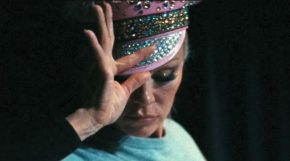Ska, which originated in the Jamaican music movement of the 1960s, was originally based on brass and was a blend of jazz, rhythm and blues and Caribbean musical influences. Over the years, it has evolved and taken on characteristics of many other musical styles, such as rocksteady, reggae, punk rock and hip-hop.
The Pannonia Allstars Ska Orchestra is a prominent representative of this vibrant genre in Hungary and will take to the stage of Müpa Budapest on 19 May for a very special album launch. Their album with the renowned, two-time Latin Grammy-winning American producer Victor Rice is absolutely unique, even in their colourful career.
The concept itself is remarkable: as a fan of Béla Bartók, Rice, who is currently living in Brazil, presents songs selected from the Hungarian folk vocabulary in a Caribbean musical context together with PASO, emphasizing the musical similarities and common denominators of the two worlds.
The colourfulness of the genre is shown by the fact that there are several theories even on the origin of its name. One is that the word ‘ska’ comes from the abbreviation ‘skavoovie’, a term used in jazz in the 1940s to describe how fast bands could play. The word later spread to the music of Jamaica in the 1960s and from there spread around the world. Other theories, however, suggest that the word “ska” refers to a dance called skank, popular in the 1950s and 1960s.
We asked Kristóf Tóth, KRSA, frontman of the Pannonia Allstars Ska Orchestra, who says the closest thing to the truth is:
“Jamaicans believe that ska imitates the sound of the guitar strumming. That was the starting point.”
The music movement in Jamaica in the 1960s was a cultural revolution that fundamentally changed the musical landscape of the island nation and contributed to the emergence of reggae, ska and rocksteady music. It drew on a desire for independence and freedom and used music to express the social and political problems of Jamaican society.
In the 1960s, Jamaican musicians and performers were living in extremely difficult conditions, plagued by poverty, unemployment, racism and other social problems. However, ska brought hope and joy to the people and the blending of musical styles resulted in new and very exciting sounds. It began to spread to other countries in the 1960s and 1970s.
The first foreign successes of Jamaican artists came with the rise in popularity of English ska and rocksteady styles in the UK. The music spread among Jamaican immigrants and British music fans there, and the upbeat tunes carried the messages of this particular culture with them.
How can this way of ska be reconciled with Bartók’s music, what characterises this album, which is now being presented?
KRSA: Bartók is the link that actually brought together American music producer Victor Rice with the Pannonia Allstars Ska Orchestra. He had become a fan of Béla Bartók at an American music conservatory, and that’s why he came to Hungary. The second time he came here, we performed together and started planning something what eventually became a big project. The focus here is on Bartók’s work as a music collector, as his folk song collections were the starting point for all this. Victor Rice had the theory that there was a lot in common between the folk music of Central and Eastern Europe and the Balkans with the music of Jamaica, and he wanted to show that similarity. I think there are at least as many differences, but it was interesting to find the similarities and exploit them.
What captured him most about this music?
KRSA: There is a kind of primordial power, an elemental purity. In terms of the collections, in the compositions, in the composition, and the incredible structure that Bartók had in his mind, and that really appealed to him.
Who are the musicians and which folk music bands are joining PASO for this evening?
KRSA: Our singer is Fanni Nádasdy, who plays in Dalinda, Korinda and many other bands. György Barna is a violinist, he is a regular guest, we have been working together for at least fifteen years, he plays in Kolompos, Berka and other bands. Szabolcs Endrődi, who plays the cavalon and the flute, is also present in one of these bands. Mátyás Egervári will also be with us, playing cimbalom and long flute. Gábor Hajas will add the sounds of the reel lute to our music – he was a member of the band Folkfree. Márton Agócs comes to sing, and I must also mention the frontman of Aurevoir, Dániel Mester, who is basically a jazz saxophonist and clarinetist, but also plays Turkish music in a world music formation.
What kind of evening can we expect, what will the atmosphere be like?
KRSA: Very interesting, very mixed, because we’re going to adventure not only into the world of Hungarian folk music, but also Balkan folk music. We’re going to play all the songs from the album and enrich our own songs with instruments that are not basically in them, but that suit them very well, like the cimbalom. It’s a real musical cavalcade. It’s going to be a unique, special, one-time occasion to stage the album in this way, so if you’re interested, now’s the time to give it a listen.
Article: Anna Rácz
Translation: Zsófia Hacsek



























Comments